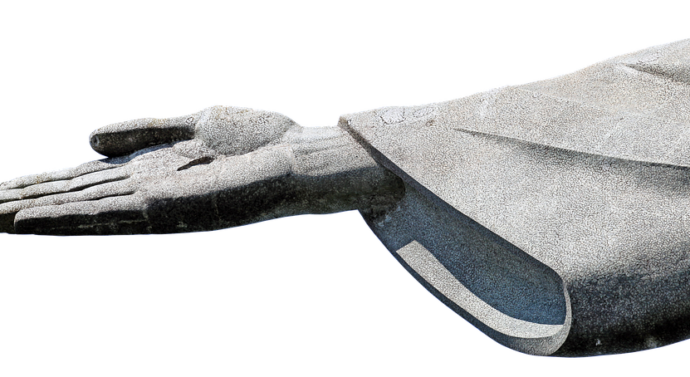
Preserving natural and human history in the wake of the Rio Museum fire
Editorial September 14, 2018, Comments Off 44To say “recorded history” is redundant. In its very nature, history requires documentation to exist and has since the first hominid painted its hand on a cave wall. When such records are threatened, it threatens our progress as well.
Fire destroys Brazil’s National Museum
On September 2, Brazil’s National Museum in Rio de Janeiro caught fire. Once the blaze started, it was unstoppable. Although the main library, herbarium and vertebrate collection were stored elsewhere, over 90 percent of the museum was lost.
The National Museum experienced multiple budget cuts over the last five years and, in its 200-year lifespan, had never been fully renovated. The National Museum did not have a functional sprinkler system in place. Although there have been plans to relocate the collection since the 1990s, the lack of funding forced museum staff to ask for donations from the public.
In an interview with “The Atlantic,” Brazilian paleontologist Gabi Sobral lamented that these losses of ancient history were caused by mankind.
“They were the result of bad infrastructure that we knew was there,” Sobral said. “We failed the collection.”
A foundation of history
The building itself held historical importance, housing the Portuguese royal family from 1808 to 1821 during the exile to escape Napoleon. Within the collections was Luzia, the 11,000-year-old human fossil and the oldest one found in North America, as well as a meteorite originally discovered in 1874. While the meteorite remains intact, Luzia and millions of artifacts tracing the course of Brazilian history were destroyed in hours.
The museum was also home to pterosaur skeletons unearthed in Brazil that were crucial to scientific study as many were the first – and best – discovered of their species.
Sponsored by the University of Rio, the building hosted multiple offices and facilities for research in the collections. Many doctorate students have lost the basis for their projects and degrees.
Not an uncommon occurrence
Brazil, unfortunately, is not a unique case. In 2010, the Instituto Butantan of Sao Paulo, also lacking a fire response system, lost its collection of venomous animals to flames. The National Museum of National History in New Delhi, India burned to the ground in 2016.
“In the face of tonight’s tragedy, the students of the museology course… are mobilizing to preserve the memory of the National Museum,” reported an email sent out by the National Museum on the day of the fire. “We ask everyone who possesses images of the collection and exhibition spaces to share them with us.”
Unrecoverable losses
But how do you rebuild a collection amassed over 200 years? The simple answer is that it is impossible. The potential knowledge to be discovered from hands-on experience is lost.
Even for those who have not chosen history as their career path, understanding our past as a species, nation or culture is crucial to our actions in the future. Previous actions illustrate patterns and processes that both differentiate and connect us to our ancestors, either as a warning or a beacon of what there is to be done.
Groundbreaking discoveries in the field of science have also been made through fossil analysis that deepen our understanding of where we come from and how our environment has changed.
Preserving human history in the future
Beyond the grief pouring out of Brazil, the world should use this tragedy to evaluate where we stand on protecting our own histories. America has an extensive system of museums, including the Smithsonian Institute in Washington and its affiliates across the country. While a fire is less likely in these collections, budget cuts to education and preservation are nothing new.
Preserving every bit of natural and human history would be ridiculous. However, we must parse through what is relevant and important and what can be discarded carefully, rather than watch it go up in flames.
We must encourage the study and preservation of history within classrooms and at a national level, not only because it goes hand in hand with science, but because it is valuable in its own right.
To paraphrase Ian Malcolm, there was a time before human history and there will be a time after it. Would we survive without taking care of the records that we were here? Yes. But we would sacrifice an intrinsic part of what it means to be human.
Article by Maclen Johnson.